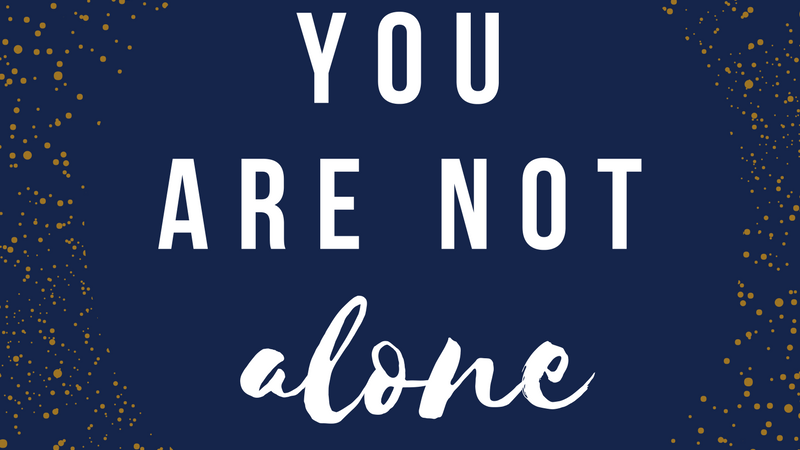
The Less You Know
There’s something really powerful about being the least knowledgeable person in the room.
In my previous life, I got to be the most knowledgeable person in the room sometimes. After years of hard work, I was truly a field expert. I gave keynote speeches. I co-wrote a book. I could rattle off facts and statistics with ease. I did a lot more talking than I did listening.
As a consultant, I’m often the least knowledgeable person in the room on the topic of the day. At first, this terrified me. I found myself turning down work because I felt uncomfortable not knowing every last thing about the topic. How could I possibly add value if I didn’t write the book on it?
My work with the International Arts + Mind Lab (IAM Lab) at the Johns Hopkins Brain Science Institute is a daily exercise in letting go of this fear. That’s right, I said brain science. My role as a strategist, writer, editor and documentarian for the IAM Lab means I’m often swimming in deep waters without the snug life vest of expertise. Learning how to learn again has been exciting. I go to meetings and events with my client. I interview experts. I read research. I’ve learned a lot about our field of neuroaesthetics, but I’m still totally out of my league on a regular basis.
Case in point—a few months ago, the IAM Lab started a project with a local children’s hospital to design, build and test a sensory healing room for children recovering from serious brain injuries. The goal: bring them back to health sooner and more fully by customizing their environment with the smells, sights, sounds and textures they respond to the best. It’s fascinating and important work. I was really excited to be invited to the kick-off meeting to be a fly on the wall, only to quickly learn that I was meant to manage the project. Gulp.
So began a series of meetings with really smart and passionate people—neurologists, neuropsychologists, architects, occupational therapists, physical therapists, plant managers, manufacturers and the most important of all, the head of nursing. I would ask one question and type as fast as I could for the next 30 minutes as they talked about what was possible and what their patients and families needed out of this work. For the first several meetings, I’m sure my purpose in the project seemed nothing more than furious typing and head nodding.
Finally, I got the chance to do what I do. I looked across the transcripts of all of our meetings, coded them for themes, googled all the words I had never heard before and wrote a synthesis of the listening tour. I identified a set of key priorities. I cataloged the protocols they discussed. I pulled in some of my own research. I felt good. Accomplished.
A week later, I stepped into a very hot and crowded conference room at the hospital and presented my synthesis, the backbone of the architect’s design they would potentially spend hundreds of thousands of dollars to build. I went through each section of the memo. The audience was rapt. Or were they aghast? I had a lot of eye contact, but virtually no positive or negative indicators from the room of thoughtful physicians, nurses and therapists throughout my 20-minute presentation or the architect’s presentation that followed. They looked at each other from time to time, knowingly. I expected them to pipe in with feedback or ideas along the way, but I got nothing. From anyone. I made it all the way to the end of the presentation, sweat pooled on my brow, silence hanging in the air. My boss chimed in and said, a bit uneasily, “Soooo, what do you think?”
After another painstaking pause, the designated spokesdoctor in the room leaned forward and put her elbows on the table. She looked from my boss to me and back again before saying, “What I think… is that you’ve been incredibly responsive.”
It was like someone finally opened a window. I felt the air circulating again. The people in the room began to smile. As they loosened up and began to talk, I realized how excited and gratified they were just to have been heard. These people would do anything to help the children in their care. Getting this right mattered so much to them, but it didn’t require a Ph.D. or an M.D., just open ears and a shared commitment to better results.
I realized in that moment that the skills it takes to be a good consultant are very similar to the skills it takes to be a good lawyer, journalist or detective. Ask the right questions of the right people. Show up at the right place at the right time. Take copious notes. Rely on the facts but use your best judgment when required. And never let ‘em see you sweat.
So, the next time you find yourself in a room full of “experts,” don’t sweat it. Enjoy the chance to listen without worrying about what you’ll say next. Play the role of mediator, documenter and reporter, and know I’m right there with you, typing and nodding away.




a great reminder that it’s ok not to be the smartest in the room! nicely said.
Wonderful observations, beautifully stated. In my professional life I was often called upon to distill complicated subjects (insurance reform, banking fraud schemes, budget allocations, school choice, on and on) into a document that accurately captured the essential elements but was accessible to the public at large. I found it to be a great advantage to NOT know much about the subject going in. I couldn’t get lost in the details, I had no distracting personal bias. Often my summary documents would reflect my own learning process; what’s most important, how things interrelate, what are the inevitable questions, etc. A good communicator is a great asset to any organization which seeks to inform or persuade the public. Clearly you are such a communicator. Well done.
That makes a lot of sense! That’s kind of how it was in policy school. We’d have to become experts on something in a really short period of time and distill hundreds of pages of reading down to two pages of recommendations. It’s cool that it reflects your actual policymaking experience!
[…] in writing at NSLA: the joy that comes from knowing what you’re talking about. As I mentioned in “The Less You Know,” I was fortunate to work somewhere long enough that I could speak and write with ease and authority. […]